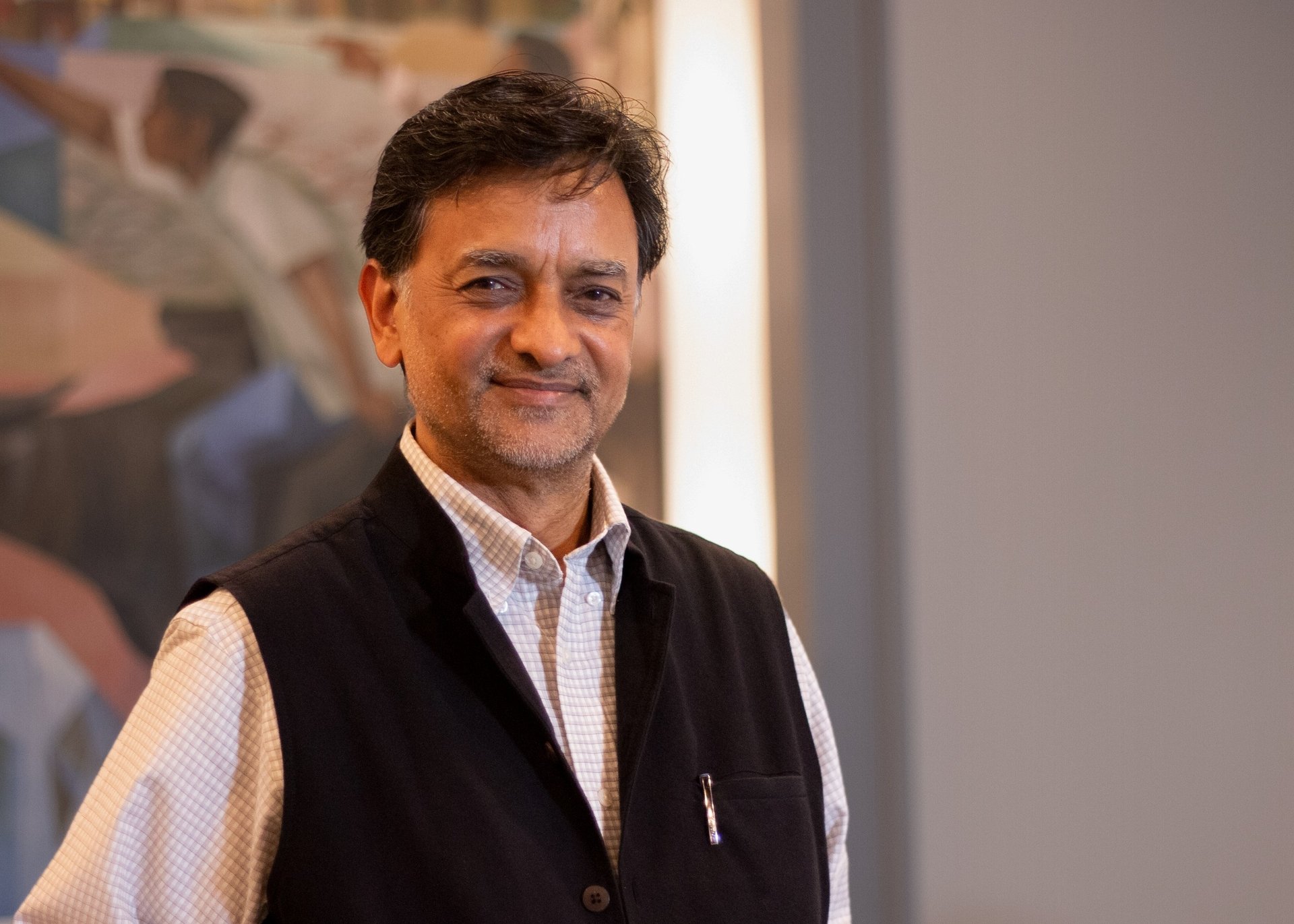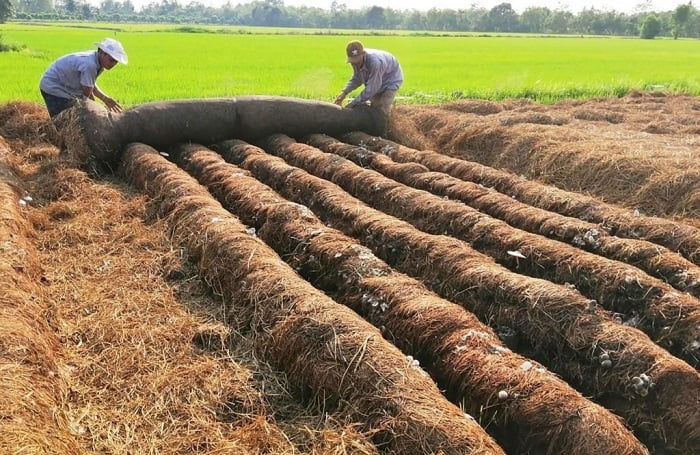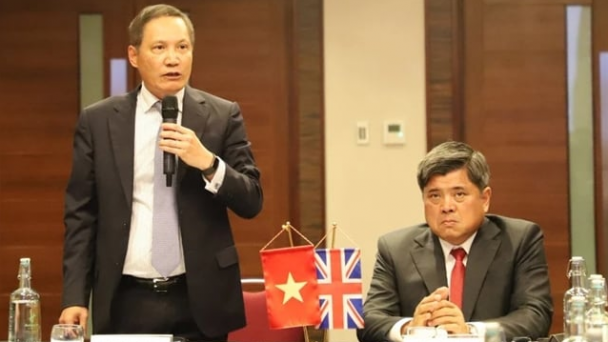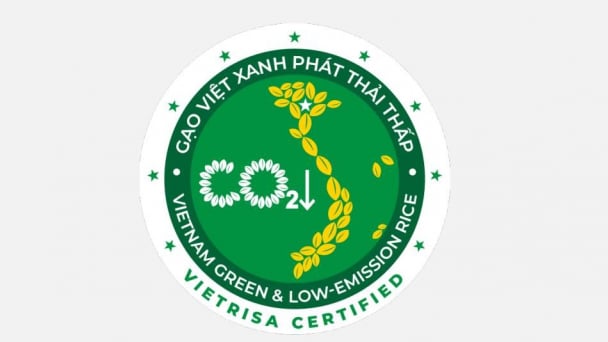May 15, 2025 | 16:34 GMT +7
May 15, 2025 | 16:34 GMT +7
Hotline: 0913.378.918
May 15, 2025 | 16:34 GMT +7
Hotline: 0913.378.918

Dr. Ajay Kohli Interim Director General International Rice Research Institute (IRRI).
Vietnam bore the brunt of a long war from 1955-1975, which negatively affected the country and its people, especially in terms of food security. The resilience of Vietnam is obvious from the fact that in 1963, soon after the establishment of the International Rice Research Institute (IRRI) in the Philippines in 1960, its first scientist came to IRRI to study. Since then, Vietnam and IRRI have been partners in improving rice production in the country. Using the IRRI germplasm, Vietnam made rapid progress in rice production in the 1980s and 1990s. During that period, Vietnam widely surpassed the rates of rice production in other Asian countries and became a major rice exporter by 1989.
Today, Vietnam is the world's third-largest rice exporter, after India and Thailand. In the first half of 2023 alone, Vietnam has already exported nearly 4.9 million tons of rice. As such, it plays a major role in ensuring global rice security, particularly for countries that depend on rice imports to meet local demands.
Ninety percent of Vietnam’s rice exports are produced in the Mekong River Delta also known as the country’s Rice Bowl. The Mekong River Delta, like many other agri-food production systems, has been impacted by intensive but unsustainable cropping practices, decreasing resources and climate change.
Climate change poses perhaps the most severe consequences to Vietnam’s Rice Bowl. Up to 39% and 44% of the total rice area is exposed to persistent floods and saltwater intrusion, respectively. In 2016 and 2020, the Mekong River Delta also suffered from droughts of historic proportions. The latter caused severe saltwater intrusion that damaged 33,000 hectares of rice crops. By the year 2100, if Vietnam’s rice production continues on “business as usual” mode, its output could be reduced by almost 22%.
Rice cultivation is a major producer of methane, a greenhouse gas that contributes to climate change. To address this, Vietnam has prioritized as an urgent priority to meet its goal of cutting methane emissions by 30% by 2030 without compromising its rice exports.
Achieving a cleaner and greener rice sector in the Mekong River Delta involves a shift towards climate-smart agricultural practices that will help boost farmers’ incomes and livelihoods, sustainability, and employment. Such adaptation measures aim to improve delta resilience and adaptive capacity of the natural, economic, and social systems to reduce future losses and damages to its rice sector caused by the impacts of climate change. A huge part of IRRI's 2022-2027 climate change strategy is hinged on formulating solutions with local and national partners to these challenges from the plant to scaling levels.
Among such measures is the process of alternate wetting and drying (AWD) developed by IRRI. AWD is an increasingly popular water-saving practice in many rice-producing countries where the technology is suitable, feasible, and has high adoption potential. Water management is the single most significant factor that determines the amount of GHG emitted from rice production and AWD has been proven to reduce GHG emissions in rice production by 30%-70% without affecting yields.
Laser land leveling is a sustainable rice production practice which helps in timely and optimal water management in precisely leveled fields to match crop growth requirements. It increases water-use efficiency, crop productivity, and grain quality while reducing weed problems. Laser land leveling technology is particularly useful in the “Small Farmer, Large Field” program, one of the promoted models of agricultural structural transformation in Vietnam, where rice fields are expanded or field bunds are removed. The unlevelled topography of the expanded fields creates physical barriers where the differences in elevation adversely affect the management of water and other agronomic inputs. Mechanized direct seeding is also a resource-saving system with a significant seeding rate at 50 kilograms per hectare, requires 20 percent less fertilizer, and reduces emissions per kilogram of rice produced by more than 10 percent.
In many rice-producing countries, farmers often practice rice straw burning after harvest as an easy solution to clear the land for the next crop. However, the practice has adverse effects on environmental and human health. It produces pollutants such as carbon dioxide, carbon monoxide, nitrogen oxide, and sulfur dioxide which fuels climate change. With approximately 24 million tons of rice straw produced annually in the Mekong Delta, alternative rice straw management is crucial to the sustainability of the rice sector.

Collecting straw to grow mushrooms is one of the solutions to limit the burning of straw after rice harvest.
In Vietnam, among the rice straw management technologies the straw compost turner developed in collaboration with IRRI converts rice straw into compost. This technology was developed under IRRI’s Scalable straw management options for improved livelihoods, sustainability, and low environmental footprint in rice‐based production systems project. Vietnam’s Department of Crop Production (DCP)-Ministry of Agriculture and Rural Development (MARD) and IRRI also recently successfully developed a technical guideline titled ‘Handbook on Rice Straw Management towards Circular and Low Emission Agriculture in Mekong River Delta’. Covering rice straw management protocols for implementation in the whole Mekong River Delta region, this effort is intended to contribute to the Vietnam government’s proposal for the “Sustainable Development of One Million Hectares of Specialized High Quality and Low Carbon Rice Production Areas under the Green Growth Agenda in the Mekong Delta Region up to 2030”.
These solutions and interventions will not be as effective without considering local specific conditions and the conflicts in natural resources management that differ from country to country. Through CS-MAP, IRRI and partners are able to apply a participatory approach that integrates local knowledge and science-based research in developing maps of climate-related risks and adaptation plans for crop production, suitable to location-specific conditions. It has been effectively implemented in five ecological regions of Vietnam, including the Mekong River Delta region, in order to help farmers mitigate climate-related risks, such as flooding, drought and salinity intrusion.
The IRRI climate change team has been doing research on emissions in rice for over 20 years and are global leaders in this field. Our extensive data and expertise has allowed us to develop robust and innovative technologies and methodologies for measuring, analyzing, and mitigating emissions across rice ecosystems and the entire rice value chain.
Capitalizing on current strengths, IRRI has committed to invest in novel research areas – and develop new partnerships – to continue developing next-generation solutions such as low-carbon farming, rice carbon credit markets, and policy support and analyses. At the same time, IRRI will continue to harp on its strong local, national, and international partnerships to co-create and disseminate solutions ‘at scale’ and to support the development and implementation of national development plans to reduce GHG emissions and adapt to climate change.
With already well-established partnerships and proven solutions in place, a strong and steady stream of investments in these efforts can help fuel IRRI’s sustained contribution to Vietnam’s agriculture, climate, and sustainability goals.
Interim Director General, International Rice Research Institute (IRRI)

(VAN) Veterinary training should focus on quality, not just quantity. Veterinarians also need more options to pursue specialized training.

(VAN) The veterinary industry needs to be viewed objectively and further invested in to properly demonstrate its role and importance in the new context.

(VAN) The number of veterinarians graduating each year is not enough to meet actual needs, hence a difficult problem for the growing livestock industry.

(VAN) The strategic partnership between Cambodia, the Philippines, Vietnam, and CGIAR ensures that innovative solutions effectively address national priorities for food system development.

(VAN) This was affirmed by the UK Minister of State at the Department for Environment, Food and Rural Affairs during a working session with Deputy Minister Tran Thanh Nam on May 13.

(VAN) On May 13, the Ministry of Agriculture and Environment, in coordination with the Embassy of Vietnam in the United Kingdom, organized a seminar titled 'Connecting trade in Vietnam-UK agricultural, forestry, and fishery products'.

(VAN) The launch of the Vietnam green and low-emission rice brand is a positive signal for both businesses and farmers, marking readiness to reach new heights in the global market.